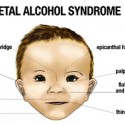Regular binge drinking can cause long-term brain damage
Just a few sessions of heavy drinking can damage someone’s ability to pay attention, remember things and make good judgments, research shows.
Binge drinkers are known to be at increased risk of accidents, violence and engaging in unprotected sex. But the study is the first to identify brain damage as a danger of consuming more alcohol than official safe limits.
The research, to be published in the journal Alcohol and Alcoholism, is significant because binge drinking is so widespread in the UK. Twenty-three per cent of men and 15% of women drink more than twice the government’s recommended daily limit. For men this means consuming more than eight units a day and for women more than six, according to the Office for National Statistics.
Binge drinkers aged between 18 and 24 are a key target of the government’s alcohol strategy because a minority of people in that age group cause the majority of alcohol-related crime and disorder.
Professor Ian Gilmore, president of the Royal College of Physicians, said: “We know large numbers of people in this country binge drink. This should be a wake-up call to the millions of people whose lifestyle means they get drunk regularly.”
Gilmore, who is also the chair of the Alcohol Health Alliance of key medical organisations and specialist alcohol charities, added: “We are all already aware of the immediate impacts of binge drinking: accidents, violence, admission to hospital and unwanted pregnancies. But this opens up the spectre that drinkers who binge regularly may be at risk of long-term brain damage.”
The study was undertaken by two experts in alcohol’s toxic effects on the brain: Professor Fulton Crews, director of the Bowles Centre for Alcohol Studies at the University of North Carolina, and Dr Kim Nixon of the department of pharmaceutical sciences at the University of Kentucky.
They reviewed previous studies in which rats were used in experiments to examine the impact of binge drinking and then related those findings to humans. For four days in a row the rats were given the same amount of ethanol that someone imbibing 15 units of alcohol – about seven pints of normal-strength beer – would consume in one drinking session. Losses in key mental abilities were noted in the weeks after the experiment had ended.
“It is fair and credible to extrapolate the research findings from tests on rats to humans,” said Dr Jonathan Chick of the alcohol problems service at the Royal Edinburgh hospital, who is the chief editor of Alcohol and Alcoholism.
“From this research we can infer that humans who have a few heavy drinking sessions in a row may sometimes undergo subtle brain changes which make it harder to learn from mistakes and to learn new ways of tackling problems because their brain function has been subtly impaired.”
The research also suggests that loss of brain function in people under 20 brought on by binge drinking increases their chances of becoming alcoholics in later life, Chick added.
Alcohol-related brain damage is becoming a growing burden on the NHS as per capita alcohol consumption increases. Patients with the condition who do not die early need long-term care, which can cost £1,000 a week, for the rest of their lives.
The findings underlined the need for the NHS to do more to identify and help heavy drinkers early on, Gilmore said.
However, the study also found that binge drinkers who then abstained from alcohol did not suffer long-term brain damage.
source: The Guardian
